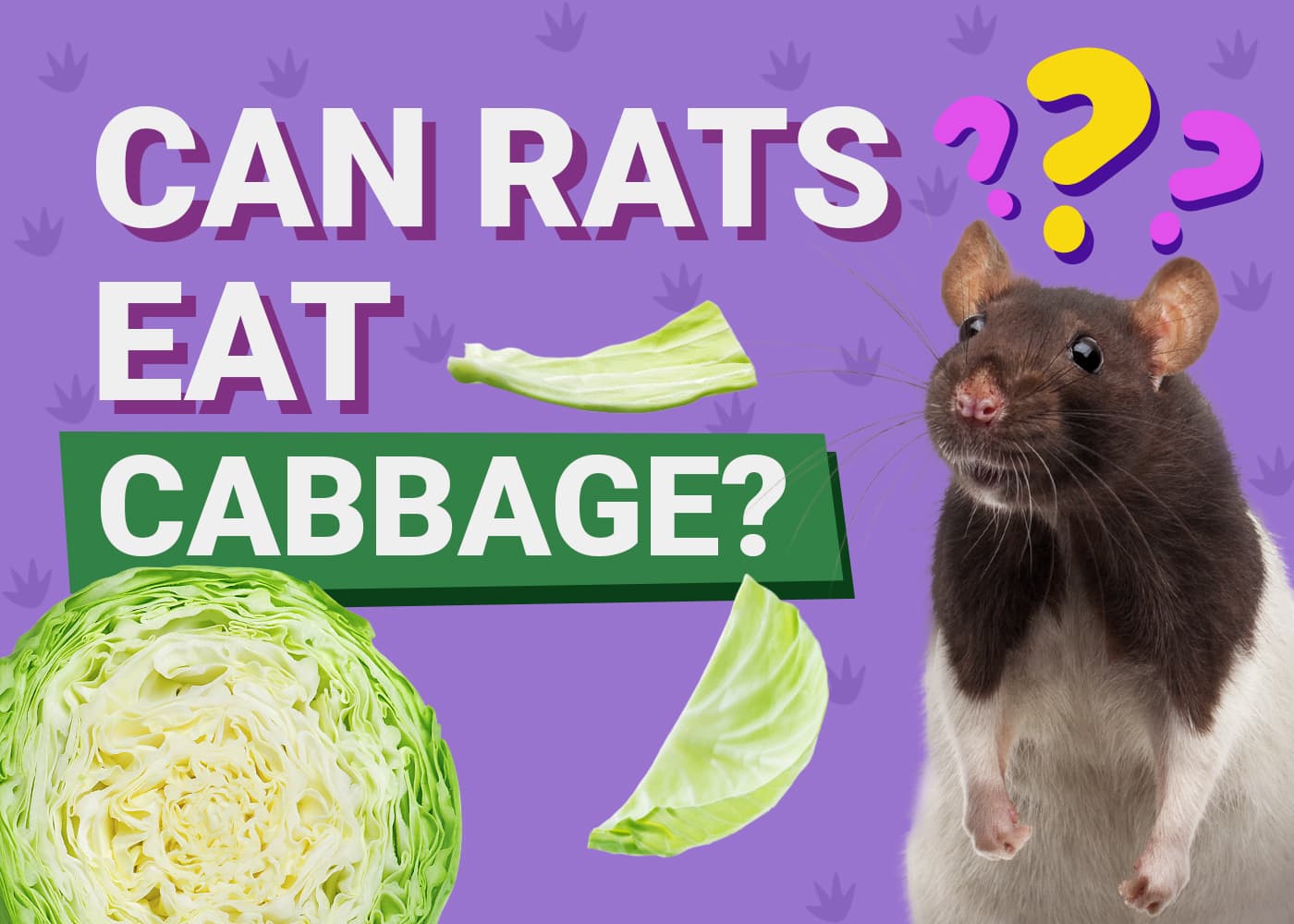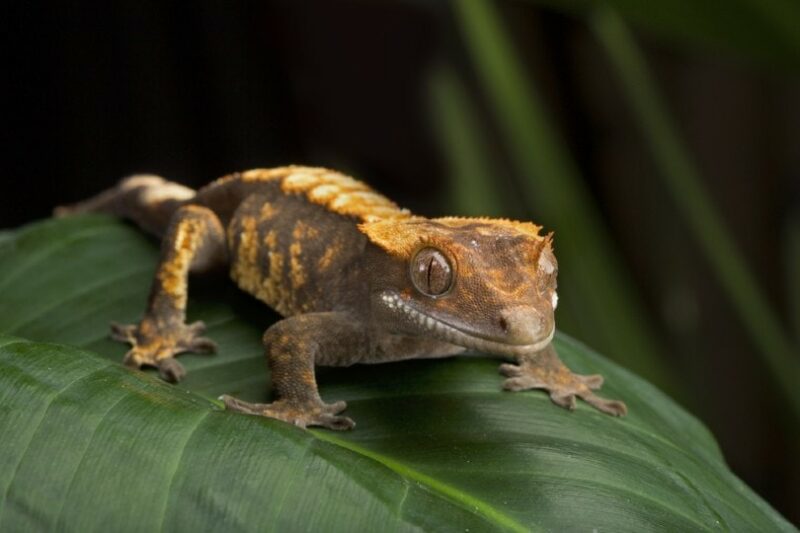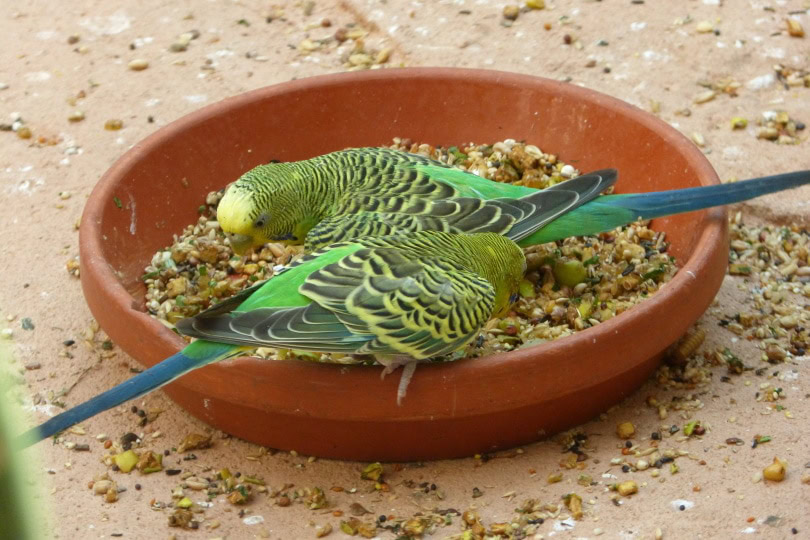VET APPROVED

The information is current and up-to-date in accordance with the latest veterinarian research.
Learn more »Click to Skip Ahead
Rats are known to eat everything they come across in the wild. If you are a rat owner, it is less likely to feed the animal just anything. Though rats are opportunistic omnivores, their diet as pets needs to be closely monitored to ensure that they do not end up nutritionally compromised.
So, can rats eat cabbage? Spring cabbage is the safest option as far as cabbage is concerned for a pet rat’s diet. Other forms of cabbage are either unhealthy or dangerous/toxic for them to consume.
Here is everything you need to know about feeding cabbage to your rat.

Cabbages & Rats
Some forms of cabbage have several nutritional perks which render them a favorable addition to a rat’s diet. However, the type of cabbage matters tremendously. Some cabbages are a welcome addition to a rat’s diet whereas others are either the equivalent of junk food or even toxic to them!
Spring Cabbage
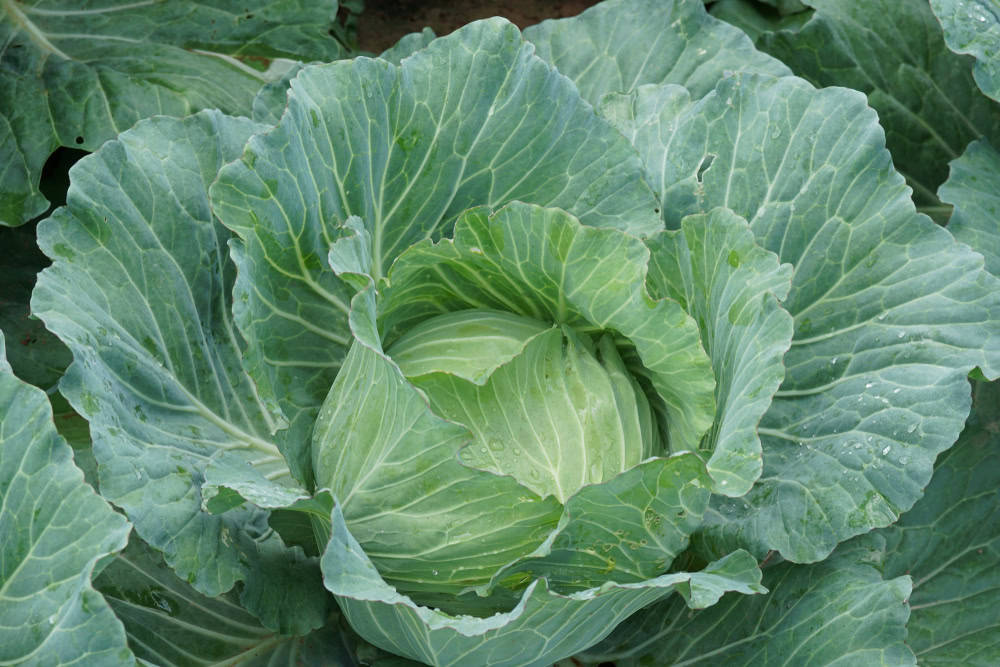
As far as rat nutrition is concerned, this is the best possible kind of cabbage you can offer them. It is safe for them, and offers a great deal of fiber, which is what most non-pellet food for pet rabbits should be primarily focussed towards.
Dutch Cabbage
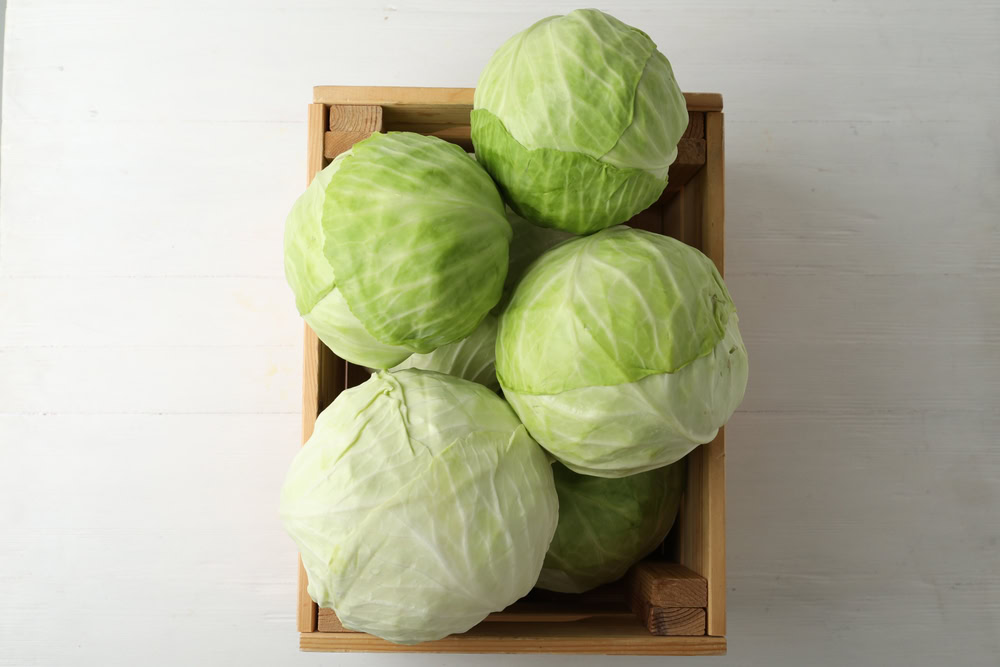
Dutch cabbages, also called white cabbages, are in fact green cabbages with pale, tightly packed leaves. Their coloration depends on their exposure to sunlight; prolonged exposure to the sun can turn their outer leaves green, leaving the inner part of the cabbage as white.
This cabbage, while not toxic for rats, isn’t considered healthy for them as it makes it prone to digestive distress (in the form of painful gas). It can also lead to diarrhea in pet rats. Contrary to popular belief, diarrhea in any rodent shouldn’t be taken lightly, as many rodents need to eat their own feces for normal digestive processes. Experiencing diarrhea prohibits them from doing so, and can lead to a quickly deteriorating pet!
Red Cabbage
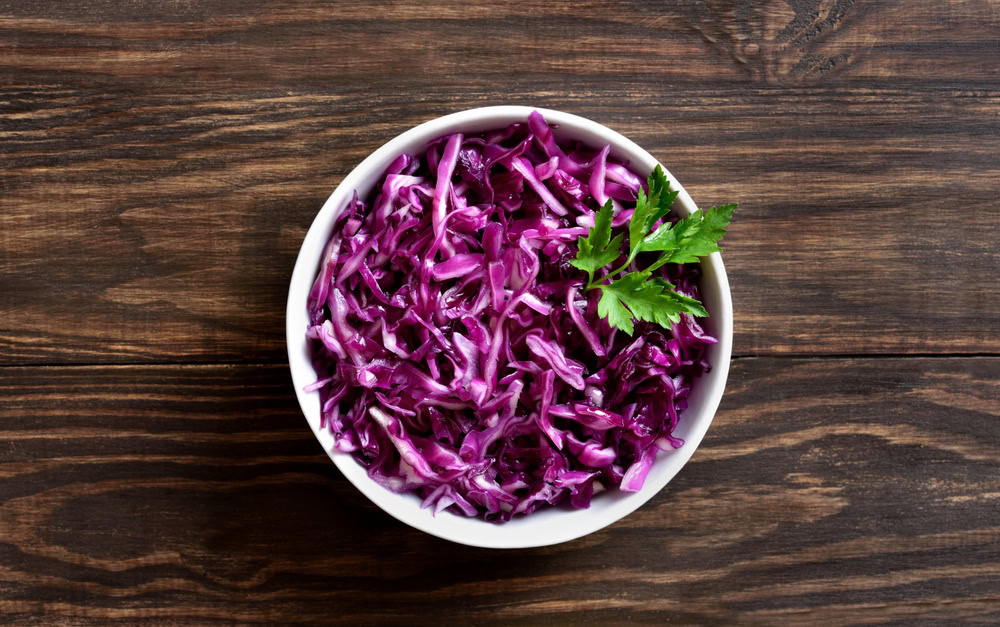
Red cabbage is not advised for pet rats, and in some literature1 is considered toxic in excess. This is because it is high in polyhydroxyphenols, compounds that destroy thiamine (vitamin B1) by transforming thiamine to non-absorbable thiamine disulfide. Polyhydroxyphenols are heat-stable, which means that cooking red cabbage will not make it safe for your rat to consume.
Polyhydroxyphenols are also found in high amounts in betel nuts, blueberries, blackcurrants, and brussels sprouts. This renders these foods unsafe for a pet rat as well.

Other “Cabbages” & Rats
Many different kinds of foods are often labeled or classified as cabbages. Examples of “safe” cabbages include the following.
- Napa/Pe-Sai Cabbage: safe, but not necessarily healthy
- Pak-choi/Bok-choy: safe, but not necessarily healthy
- Savoy cabbage: safe, quite healthy for rats
- Brussel sprouts
- Red cabbage
- Any cruciferous vegetable/cabbage offered in excess (more than 20% of a rat’s diet)
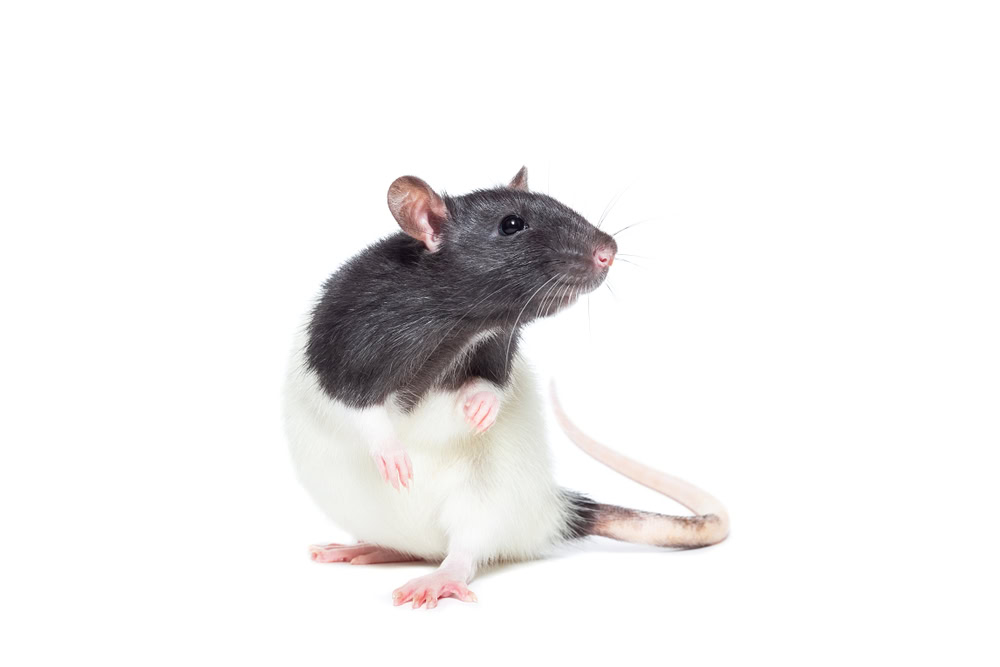
Other Foods to Avoid Feeding Your Rat
Here is a list of foods you should avoid feeding your rat.
Spring cabbage is safe for rats to consume in moderation and is an excellent source of fiber for them. Many other forms of cabbage are safe for rats, however, they aren’t necessarily healthy for them. Red cabbage and brussel sprouts are the hypothetical “villains” of the cabbage world as far as rats are concerned; these foods should not be offered to them. The diet of pet rats is equally complex as it is intriguing, and as such, it’s best their nutritional needs with your veterinarian for a more accurate idea of what is best to feed your pet. Related Reads:

Summary
